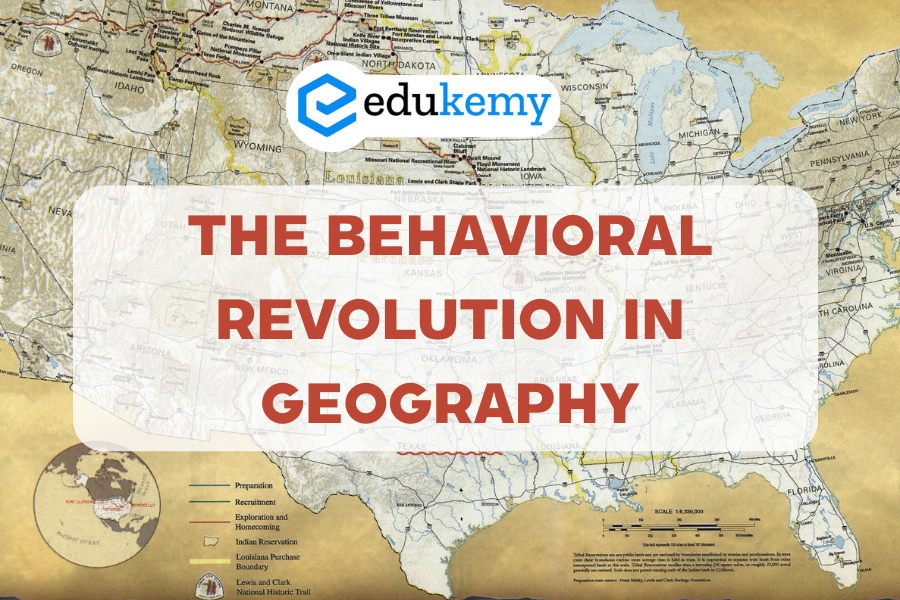The Behavioral Revolution transformed geography by focusing on human behavior, decision-making, and spatial perception, adding a human-centered approach.

Contents
Introduction
The 20th-century shift known as the Behavioral Revolution marked a significant turn in the field of geography, as it did in the social sciences as a whole. Prior to this period, much of geography focused on spatial relationships, physical landscapes, and the deterministic influence of the environment on human life. However, as the Behavioral Revolution took shape, geographers began to prioritize understanding human behavior, decision-making processes, and perceptions of space. This transformation added a valuable dimension to the discipline, blending psychology, sociology, and human geography into a more holistic approach.
Check Shabbir sir Class Notes
Click here to download
Behavioral Revolution: Legacy and Lasting Influence
The Behavioral Revolution in geography was a foundational shift that continues to shape human geography today. This revolution paved the way for subsequent developments in cultural, social, and feminist geographies, each of which emphasizes the complex and subjective nature of human experience. As a result, insights from the Behavioral Revolution remain relevant, particularly in fields like urban planning, environmental psychology, and spatial cognition, where understanding human behavior is essential.
Furthermore, the Behavioral Revolution set the stage for advancements in Geographic Information Systems (GIS) and other modern technologies. While GIS and spatial data science rely heavily on quantitative methods, the revolution’s focus on human perception and behavior has ensured these tools are often applied with an awareness of subjective experiences. Consequently, contemporary fields like spatial data science benefit from the nuanced insights into human-environment relationships that emerged during this transformative period.
Conclusion: The Ongoing Impact of the Behavioral Revolution
In conclusion, the Behavioral Revolution was a landmark period in the history of geography, reshaping the discipline by challenging deterministic and purely spatial perspectives. By focusing on human perception, cognitive mapping, and decision-making processes, this shift added significant depth to the study of human-environment interactions. It highlighted the importance of understanding people’s subjective experiences of space, influencing fields such as urban planning, environmental management, and more.
Today, behavioral geography remains an essential approach for geographers who seek to comprehend the intricate relationships between people and the spaces they inhabit. The Behavioral Revolution not only transformed geography in the 20th century but also laid a foundation that continues to inform and inspire contemporary geographic thought.
To get free counseling/support on UPSC preparation from expert mentors please call 9773890604
- Join Geography Optional Course – Click Here
- Get Geography Hard Copy notes – Click Here

